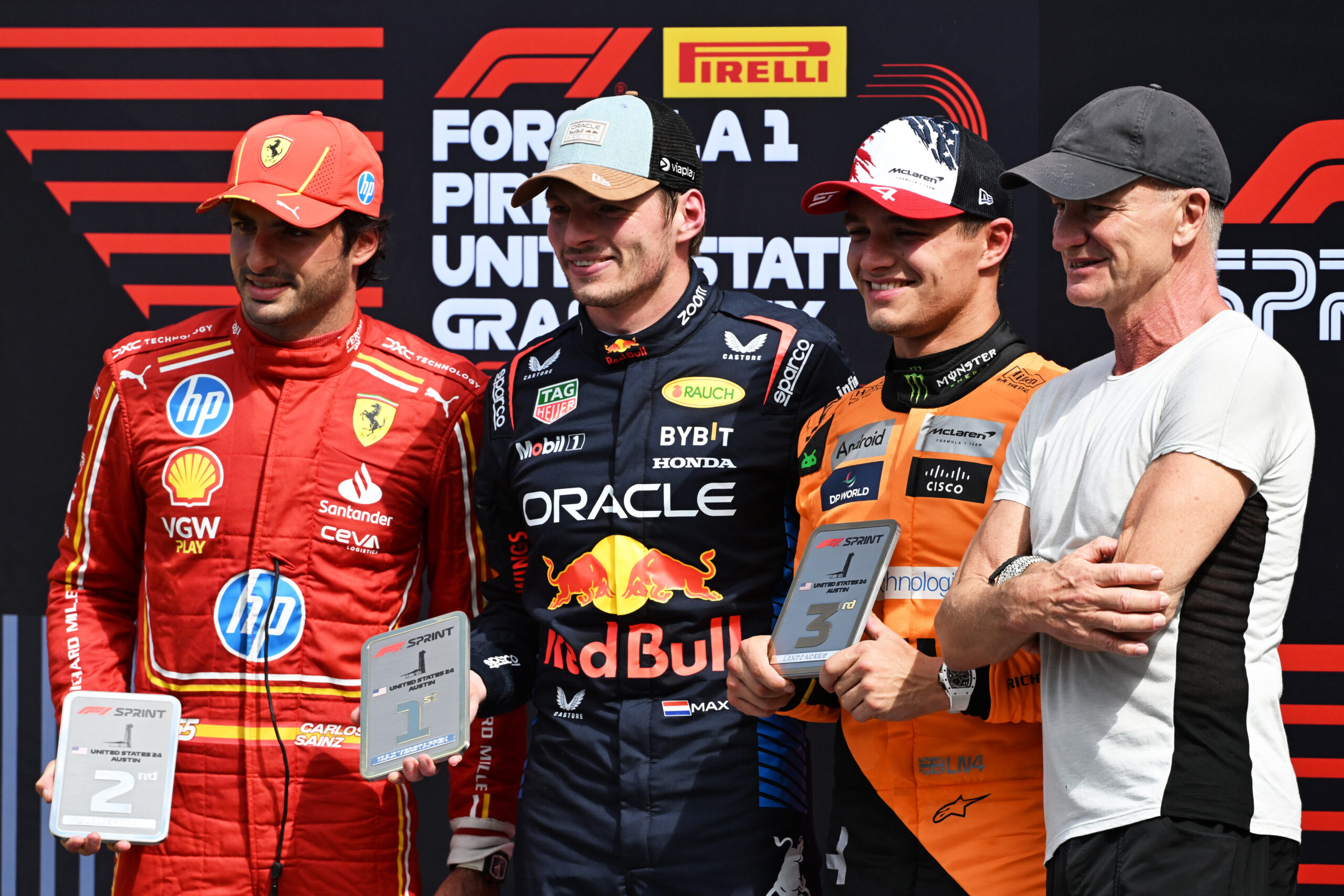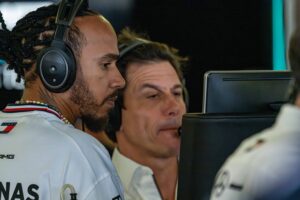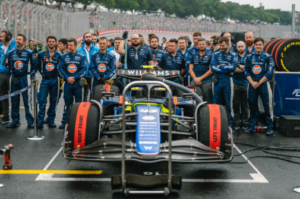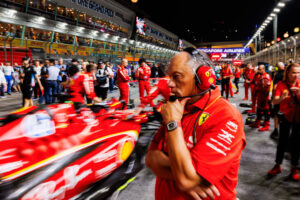As COTA has hosted the last of three F1 Sprint Races this season, many still wonder if they are worthwhile.
F1 introduced Sprint Races in 2021 and has revised the format each year following to address criticism and make them worthwhile for both those on and off the grid.
Since their debut, Max Verstappen, Valtteri Bottas, George Russell, Sergio Pérez, and Oscar Piastri have each secured at least one victory.
Verstappen started on Pole for Saturday’s Sprint at COTA, with Russell, Leclerc, and Norris lining up behind him.
The #F1Sprint starting grid 👀
Crucial points are at stake in the championship battle #F1 #USGP pic.twitter.com/8mp5gt89lC
— Formula 1 (@F1) October 19, 2024
Going into the race, it was obvious it would provide valuable points for everyone, especially those still in contention for the Drivers’ and Constructors’ Championships, such as Verstappen, Norris, Red Bull, and McLaren.
However, not everyone sees the Sprint format as worthwhile as F1 and the FIA do. This is despite today’s Sprint race providing more tension to the title fight. Verstappen led the Sprint from start to finish, while Lando Norris barely held on to his P3 finish. To make matters worse for the McLaren driver, he nearly lost his P3 when he was put under investigation by the Stewards for his final lap driving which some described as ‘erratic’.
No further action on Norris for his final lap driving at both Turn 1 and Turn 15.
“There did not appear to be any significant changes of direction under braking, and the move at Turn 15 was a legitimate defending move by the driver of Car 4”
— Chris Medland (@ChrisMedlandF1) October 19, 2024
But as mentioned, Sprint weekends are not seen as important by some.
Popularity Contest
According to F1 Media, the Sprint Race has consistently proven popular since its introduction. Strong numbers across traditional broadcast, digital, and social platforms, combined with the promise of additional racing, have boosted Friday attendances on Sprint weekends.
F1 has also reported live audience figures for Sprint Qualifying and the Sprint Race at the 2024 Chinese Grand Prix, showing a 40% increase across the top 15 markets compared to the average practice sessions for the season’s first two races.
Further Sprint viewership saw Miami attract 946,00 viewers on ESPN, marking the largest US audience for a Sprint since the format’s introduction in 2021.
In Austria this year, live viewership of Sprint Qualifying rose by 76% compared to FP2 sessions at the previous two European races.
This built on a successful 2023 season where the FIA found that new Sprint locations boosted overall viewership. Azerbaijan and Belgium stood out as top-performing weekends, with increases of 15% and 22%, respectively.
Audience Opinion
Despite strong viewership and engagement, it is worth questioning whether the overall sentiment towards Sprint Races is entirely positive.
For many, only one Sprint Race truly stands out: Sao Paulo 2021. It was the weekend where Lewis Hamilton was penalised to the back of the grid due to a technical infringement. It was also a season marked by one of the greatest rivalries in F1 history, as Hamilton and Verstappen battled for the title to the final round in Abu Dhabi.
In that Sprint, Hamilton had to force his way through the field to keep his championship hopes alive, ultimately finishing a remarkable P5 after a series of overtakes. His teammate Bottas secured victory, denying Verstappen an extra point as the Dutchman finished second.
Few Sprint races have left a lasting impression since then. One that comes close is the 2023 Qatar Sprint, where Verstappen clinched his third F1 world title, while McLaren rookie Oscar Piastri celebrated his first victory, finishing ahead of teammate Lando Norris, who has been in F1 since 2019.
Controversy
However, the weekend in Qatar sparked unexpected controversy for F1. Verstappen secured the points needed to become a three-time world champion during the Saturday Sprint, ahead of the Grand Prix on Sunday.
Although the Red Bull driver had dominated the season and it was evident the title belonged to him, many felt that winning his third title during a Sprint Race lacked the grandeur it would have had the following day.
This achievement also overshadowed Piastri’s first and only victory as a rookie.
Further controversy arose after last year’s Sprint Race at COTA. With only one Free Practice session on Friday, teams had to perfect their setups for the entire weekend, which proved challenging for Mercedes and Ferrari. Despite a successful race that saw Hamilton and Leclerc finish P2 and P3, respectively, both drivers faced disqualification from the Sunday Grand Prix due to ride height issues.
Speaking to the press last year, Red Bull Team Principal Christian Horner shared his reservations about the format:
“For me, parc ferme is a bit of a joke.
“You have one session to set your car up and then the engineers may as well go home at that point. That needs looking at and that I’m sure was a contributing factor to the right height issues [for] the teams that fell foul of the regulations [in Austin].
“Effectively it’s just a long run on a sprint race and there’s no real jeopardy to it. There’s no real incentive behind it.”
If F1 and the FIA can address shortcomings such as these, fans, drivers and their teams may come to view the Sprint Race as worthwhile.
Can Sprint Races improve?
One of the most popular ideas to improve Sprint Races is to reverse the grid after Sprint Qualifying. This would mean inverting the top 10 results to form the grid for the Sprint.
In this scenario:
P1 = P10
P2 = P9
P3 = P8
P4 = P7
P5 = P6
P6 = P5
P7 = P4
P8 = P3
P9 = P2
P10 = P1
With this approach, there is hope that drivers and teams used to starting towards the back of the grid would have the opportunity to compete for podium finishes and maximum points. It would also enable those who dominate the Grands Prix to fight to the front.
Another idea is to let reserve drivers race. While this might disappoint audiences who pay to see stars like Verstappen, Hamilton, and Leclerc, it could instil excitement into the Sprint format. It would also provide those involved in car development through simulator work with valuable on-track experience, something they currently lack on their path to F1. Think of Mick Schumacher.
Conclusion
So, are F1 Sprint Races worthwhile? The answer is complicated. While F1 and the FIA consider them a success, stakeholders still need to work on translating this confidence into acceptance from both spectators and those on the grid.






